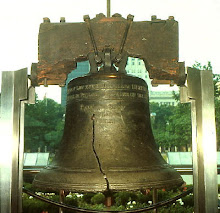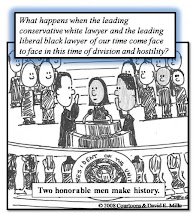

I have tried to use this blog for legal commentary, not for marketing my law office. I don’t take advertising. I just lend to these pages reflections on my experiences as a lawyer in Florida, sworn into the Bar thirty years ago next Wednesday.. Today though, I am going to talk about one of my own cases. But the story is more about my client and his judge then it is about me.
Carving out a judicial identity is no easy task. However, what I saw Judge Bernie Bober do in court on Tuesday merits recognition and comment.
It was a tough case that he inherited from another judge who had been transferred in January to the civil bench. The defendant had a small marijuana grow house in his back yard. But the defendant was not some young kid running a dope operation to sell weed. He was a medical caregiver, tending to plants while providing for his domestic partner who was living with HIV. They were both in their 40’s, came to America as our grandparents did, immigrants from another country. They worked hard, went to school, and graduated into their own businesses. They had strong friends, a good family, and ties to the community, socially and professionally. They owned their own home, paid their own taxes, and took care of each other; played together in local softball and bowling leagues.
“I did not want to grow pot,” the defendant said, “but I did not want to go out in the street and buy it illegally, get mugged or wind up with my partner smoking oregano or rat poison. I just wanted to provide him medicine, give him the same pot that is allowed in fourteen other states.” He apologized to the court for doing what he did, explaining his hands were tied; that he sought not to commit an injustice but rather remedy one.
Carving out a judicial identity is no easy task. However, what I saw Judge Bernie Bober do in court on Tuesday merits recognition and comment.
It was a tough case that he inherited from another judge who had been transferred in January to the civil bench. The defendant had a small marijuana grow house in his back yard. But the defendant was not some young kid running a dope operation to sell weed. He was a medical caregiver, tending to plants while providing for his domestic partner who was living with HIV. They were both in their 40’s, came to America as our grandparents did, immigrants from another country. They worked hard, went to school, and graduated into their own businesses. They had strong friends, a good family, and ties to the community, socially and professionally. They owned their own home, paid their own taxes, and took care of each other; played together in local softball and bowling leagues.
“I did not want to grow pot,” the defendant said, “but I did not want to go out in the street and buy it illegally, get mugged or wind up with my partner smoking oregano or rat poison. I just wanted to provide him medicine, give him the same pot that is allowed in fourteen other states.” He apologized to the court for doing what he did, explaining his hands were tied; that he sought not to commit an injustice but rather remedy one.
Still, the defendant was their facing a charge of manufacturing cannabis as a result of a statewide sting last year called “Operation D Day,” a secretive law enforcement initiative that targeted over 135 grow houses statewide, where some defendants were found with guns, thousands of dollars, and hundreds and hundreds of plants. My client had 4.
The motion to suppress was heard by the previous jurist who did not summarily deny it. She analyzed the ‘knock and talk’ techniques conducted by law enforcement and determined it was ‘legitimate’ and the search was ‘consensual.’ We thought not, and were determined to appeal. We refused a state’s plea offer we determined was retaliatory, though not vindictive- excessive drug offender probation, fines, and community service. We pled open to the court, and reserved our right to an appeal; a close decision we think the prior jurist decided incorrectly- coming down on the side of the state and the detectives, instead of Miranda and our clients.
I laid out the essence of a medical necessity offense, pointing out my client’s situation, as a caregiver was not unlike that which had been litigated in many jurisdictions. I even pointed out that as a dual resident of California and Florida, I owned a medical marijuana identification card which enabled me, if I so chose, to grow in my garden in San Francisco as much medicine as my client cultivated in his backyard in Wilton Manors. I talked about my client’s standing in life and how much he had achieved; how far he had gone. We had almost thirty minutes to make our case. I had no clue what the sentence would be, only that it would be lesser than the sanctions offered by the state.
“Withheld and $100 court costs” on both counts came the words from the bench, when our presentation was concluded. My client was floored. I was awed. No unnecessary and foolish state sanctioned probation with reporting and restrictions and inhibitions which diminished his stature and standing as a human being and businessman who had gone through so many roads in life successfully. A jurist who crafted out a fair resolution, which was tailored to the circumstances and not bound by past precedent. One who was defining his identity as a courageous jurist willing to act on his own.
I hardly want to suggest Judge Bober was lenient. Judge Bober was just. He was a rubber stamp for no one. Instead, he was putting a stamp of professionalism and independence in his courtroom.
Earlier that morning, wading through his lengthy docket, I saw him unhesitatingly send a recidivist single mom of four to a year and a day for a second violation of probation which involved engaging in the same criminally offensive conduct that placed her on probation the first time. Placed her in jail, uncomfortably, even with the kids crying in the courtroom. I saw him take a man who was charged with fleeing and eluding and possession with aggravating circumstances, which jeopardized the public safety and put him in jail for a year as well. I also saw a young drug offender get a second chance at a sober house. Saw him reduce a bond for a housewife surprisingly charged with ‘trafficking in Oxycodone, because of the number of pills she had, from $100,000 to $10,000 when over a dozen members of her family stood up to testfy for her. It’s no easy task to wake up each day and have to craft decisions that impact the lives of so many people so quickly so swiftly. Not when your docket is overloaded and the crimes are too many.
But on the date of April 7, 2009, I witnessed why an individual with 25 years of experience as a public defender and lawyer, who had tried everything from simple misdemeanors to complicated murders was able to rise to the task successfully, affording in his courtroom patience and professionalism, and an opportunity to be heard. It had to be a long and exhausting morning for a new judge on the bench only a few months. But I witnessed why Judge Bernie Bober will lend character and dignity to that seat for many years.
































No comments:
Post a Comment